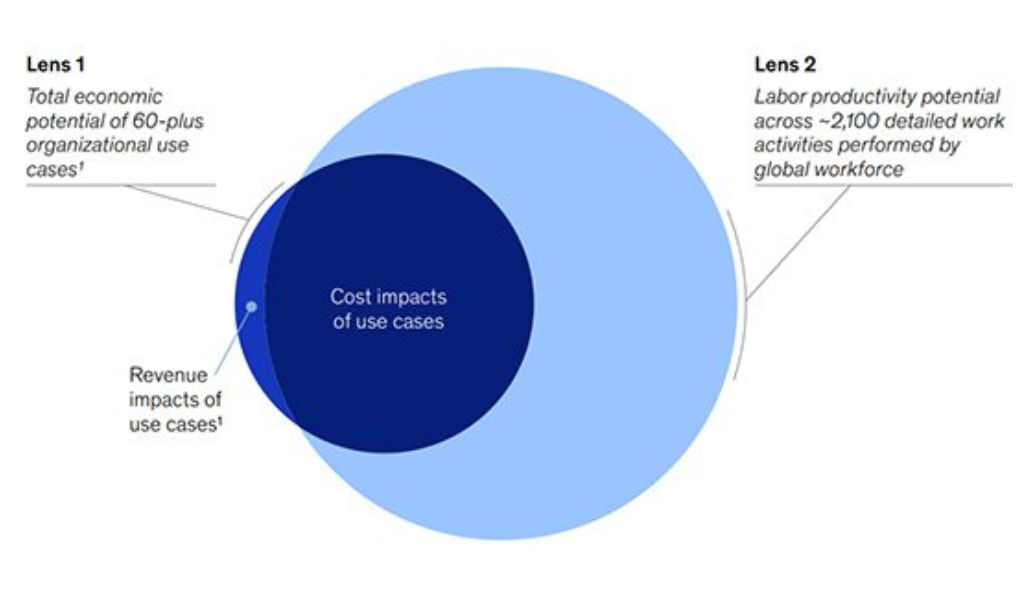The ongoing proliferation of artificial intelligence (AI) technologies into a multitude of sectors and industries is undoubtedly transforming the economic landscape. AI-driven models, in particular generative AI and foundation models, are being recognized as vital tools that carry significant economic implications. These innovative technologies offer a revolutionary approach towards deciphering and generating data. generative AI has immense economic potential, while foundation models are redefining market dynamics.

Exploring the Economic Potential of Generative AI
Generative AI is an advanced tool capable of exuding creativity and building unique outputs from minimal inputs. Companies can leverage generative AI to transform static data into dynamic actionable insights. Its data augmentation capabilities can provide substantial cost savings and increased efficiency in areas such as product prototyping, design and manufacturing.
Elsewhere, businesses can capitalize on generative AI to deliver hyper-personalised customer experiences. By mastering consumer behavior and producing tailored content, they can increase engagement rates, conversions, and eventually revenues. The automation provided by generative AI processes also reduces the overhead of manual task performance, resulting in significant economic gains.
The advertising and media industries are also reaping the economic benefits of generative AI. The technology creates diverse, original and appealing content, driving ad-engagement rates and consequently, profits. Similarly, in the film industry, AI is used to generate scripts, transforming the dynamics of content creation and reducing costs.
Moreover, the medical industry stands to gain significantly from generative AI. It can generate synthetic data that maintains privacy while offering valuable insights and training models. This promises to revolutionize healthcare and usher in economic savings by improving diagnoses, developing personalized treatments, and fostering efficient healthcare systems.
Lastly, the retail sector can harness the power of generative AI for virtual modelling of products, rendering visual merchandising more effective and budget-friendly. The potential applications are expansive and transformative, promising a significant economic impact across industries.
The Market Implications of Foundation Models
Foundation models, the AI models pretrained on broad data collected from the internet, are offering a new level of accuracy and efficiency in a wide variety of tasks. Corporations can leverage these models as a firm foundation for several applications, refining them as per the specific use-case.
As foundation models explore more specific tasks with proficiency, they can supersede the need for dedicated human expertise in certain areas. This can lead to market redistributions, where investor focus may shift towards organisations with deep proficiency in implementing and refining these models.
Industry dependability on foundation models can also accelerate market consolidation. Tech giants with more learning data can create better models and dominate the market, leading to a potential increase in entry barriers for start-ups and smaller players. This could reshape industrial landscapes and competition dynamics.
Foundation models can also foster economic growth by catalyzing the development of new products and services. They streamline product development by reducing the time and cost of training and deploying AI models. This can quicken the commercialisation process and crucially, help ventures achieve faster return on investments (ROIs).
Moreover, if used responsibly, foundation models can help organizations promote ethical AI applications, minimizing biases, and fostering inclusivity. This can lead to reputational advantages, attractive to both consumers and investors, thus economically benefiting businesses in the bigger picture.
However, caution is warranted as these models may come with repercussions such as misuse or misinterpretation of data, leading to potential revenue losses or regulatory actions. Navigation through these challenges requires robust governance structures and ethical guidelines.
The disruptive technologies of Generative AI and Foundation Models have the potential to redefine economic landscapes and market dynamics. Generative AI brings the prospect of cost-saving, efficiency, creativity and personalisation, whilst foundation models promise accuracy, efficiency, and a new benchmark for AI applications. As these technologies continue to evolve, attention must be given to the proper handling of data and ethical considerations, to ensure that businesses and industries can reap their full potential in the economic stage. Amidst AI’s transformative shift, it is vital that we embrace its potential and navigate its challenges with prudence and foresight.
Ainu Token aims to offer impartial and trustworthy information on cryptocurrency, finance, trading, and shares. However, we don't provide financial advice and recommend users to conduct their own studies and thorough checks.



Comments (No)